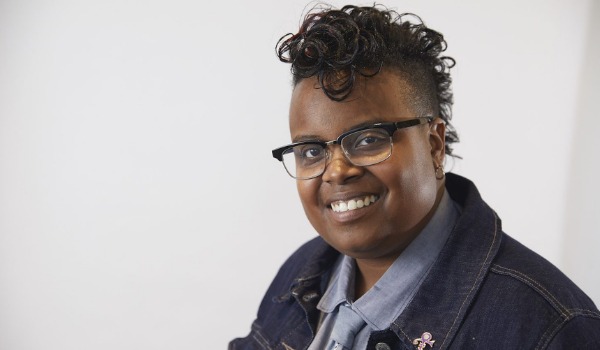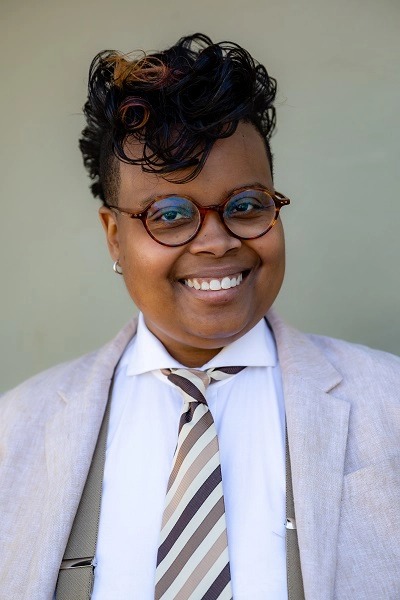Amber Senter has always been passionate about marijuana. In 2013, her experience in branding and marketing first brought her to the cannabis industry.
She moved from Chicago to Oakland for a sales and marketing position with a small candy company.
Senter now works in the marijuana sector and champions social justice. In addition, she serves as the co-founder, board chair, and executive director of Supernova Women, a nonprofit organisation whose mission is to promote the interests of people of colour in the cannabis industry. She established MAKR House, a California cannabis house of brands, and currently serves as its CEO.

She sat down with New Cannabis Ventures to talk about her perspective as a pioneer in the California cannabis sector, as well as the strides made and the work that has to be done in the area of social fairness.
MAKR House
MAKR House manufactures and distributes cannabis products to licenced stores in California. The company also sells coffee. Along with coffee and cannabis-infused products, it also distributes pre-rolls under the Landrace Origins brand. Through addition to being offered in dispensaries in the Bay Area, the company’s goods will also be available in southern California beginning in January.
Private equity investments have been attracted, despite the fact that it has been challenging for the company to raise capital in the current climate. Senter claims to have found individuals who assist the teams and organisations.
California marijuana
The illegal market still exists in California. Senter contends that there is a significant barrier to entry and no motive for unregulated operators to compete in the legal market due of the state’s regulations. Although she admits that taxes would continue to be a significant barrier, she thinks that relaxing regulations would improve the incentive to work in the legal industry.
Luminous Women
Supernova Women was founded in 2015. The 501(c)(3) nonprofit and the city of Oakland worked together to create the first social justice programme in the country. After that, it worked with San Francisco to develop its social equity programme. The organisation strongly prioritised giving the community a voice when creating those programmes. Senter and her team spent a significant amount of time connecting with locals and communicating with city workers.
Supernova Women worked with California State Senator Steven Bradford on SB 1294, the state’s first social equality measure, in 2018. The social equity programme that today supports initiatives throughout the state was made possible by this legislation.
advancing social justice
Auckland now has the strongest social justice program in the country, Center said. She credits the program with its success because it measured results and set goals for improvement. Initially, the program required lay applicants to start social justice operations. This approach has failed.
Instead, the program now includes cannabis cooperatives, spaces where social justice operators can share costs such as rent, insurance, utilities, and security. Currently, these cooperatives are only producing, but there are plans to include more types of enterprises in this model.
Other municipalities across the country could learn from this model, he said. Sharing space and costs lowers the barriers to entry for those looking to get their small business off the ground.
Senter and her colleagues continue to work for social justice. Now they are pushing to create a state-level definition of social justice in California. While most other states with social justice laws have agreed on a definition, the Center said California has not.
The cannabis industry’s awareness of how the war on drugs has disproportionately affected people of colour is a big step forward, even though social equality still needs work. Money and accountability, in Senter’s opinion, are the two most crucial elements in assuring the success of social equality programmes. She thinks social equity operators will have access to government funding and credit programmes if federal legalisation unavoidably takes place.
showcasing the talent in the cannabis industry
Senter acknowledged some of the expertise working behind the scenes to make cannabis more equitable and to make room for small enterprises. She emphasised Nina Parks, a Supernova Women board member who has made substantial contributions to San Francisco. Senter asserts to be an event planner and to have been the first to include cannabis in a municipal street festival.
She also highlighted the work done by Oakland Cannabis Regulatory Commission Chair Chaney Turner. Senter also discussed the East Coast’s talent. Another member of the Supernova Women board, Caroline Phillips, is in charge of organising the National Cannabis Festival in Washington, D.C., which draws more than 20,000 visitors.
The Coming Year
Senter predicts that the current difficult time in the cannabis market will last until 2023. There will still be a tendency toward consolidation, and some companies will have to shut down. Senter, however, looks forward to the continuous efforts of those promoting regulation reform to open up the industry to more individuals. She is also excited to see small businesses come together to create a niche in the industry for craft cannabis.


